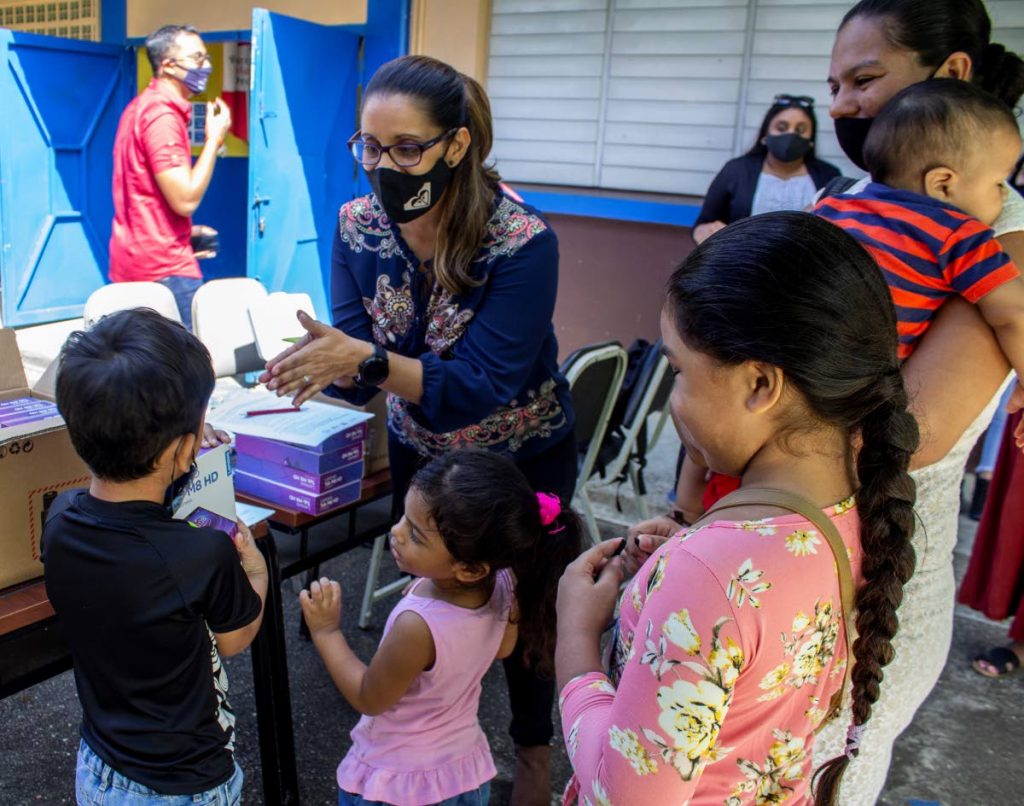Migrant children return to virtual classes

On September 4, as schools reopened, classes for Venezuelan immigrant children restarted in the Equal Place virtual educational system.
Around 1,000 boys and girls returned after two months of vacation.
Several parents told Newsday on Tuesday morning they still had no information about their children's possible entry into the public school system.
UNCHR sources said of the group at Equal Place, only 300 boys and girls between the ages of five and ten, whose parents have work permits issued by the government in 2019, were eligible to enter public schools. The rest would continue virtual classes.
Last week Education Minister Dr Nyan Gadsby-Dolly told the media the government was making progress with the first phase of the integration programme.
In principle, these immigrant children would be included in RC schools. The RC Archbishop of Port of Spain, Jason Gordon, said in May there was "more than enough" space in confessional schools to accommodate registered Venezuelan children.
The Catholic Board of Education prepared 17 schools and teachers to receive Venezuelan students.
But only just over 100 Venezuelan students were ready to enter local schools after passing the English tests carried out by assessors at UWI.
Equal Place is a temporary intervention to help asylum-seekers, refugees and other eligible children who need to access accredited education. Since September 2019, this has taken place primarily online, with opportunities for in-person support.
This intervention is a joint effort between UNHCR, the UN Refugee Agency; UNICEF; and other partners, according to the UNHCR website.
Venezuelan and local teachers come together to provide teaching for these children. However, students do not receive certification to allow them to enter further education institutions such as secondary school or university.
“We are waiting for information, but while they tell us who are the children selected to enter public schools, we must keep our children in Equal Place,” said Marina López.
Equal Place offers three levels of basic education: infants, lower junior and upper junior.
“Our children have learned English, mathematics, social studies and even the history and traditions of TT. It is a good programme, while allowing them to study formally in local schools.”
However, López said these figures are far below the number of immigrant children in TT. Data issued by the UNHCR in its May-June 2023 report showed there were 28,649 refugees and asylum-seekers living in TT, of whom 24 per cent are children (3,361 girls and 3,374 boys aged up to 17). The vast majority are Venezuelans.
López said,“UNHCR reports say there are about 6,700 immigrant children here. Only 100 will be able to enter schools, and about 1,000 are in Equal Place, so there are around 5,600 children who are not formally studying here.”
Leticia Campos said Equal Place is an education opportunity should then be evaluated by the Ministry of Education as an alternative for the formal education of immigrant children.
“If they work as a team (UNHCR and the Government) they could establish official status mechanisms for children who study at Equal Place. It would be a good option they should explore.”

Comments
"Migrant children return to virtual classes"